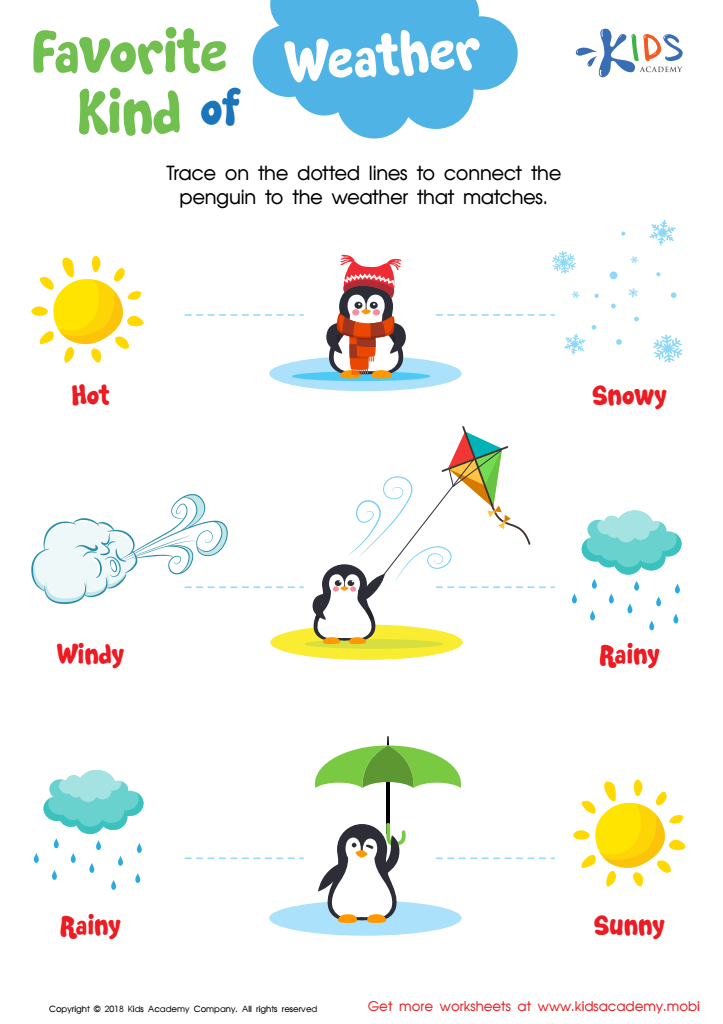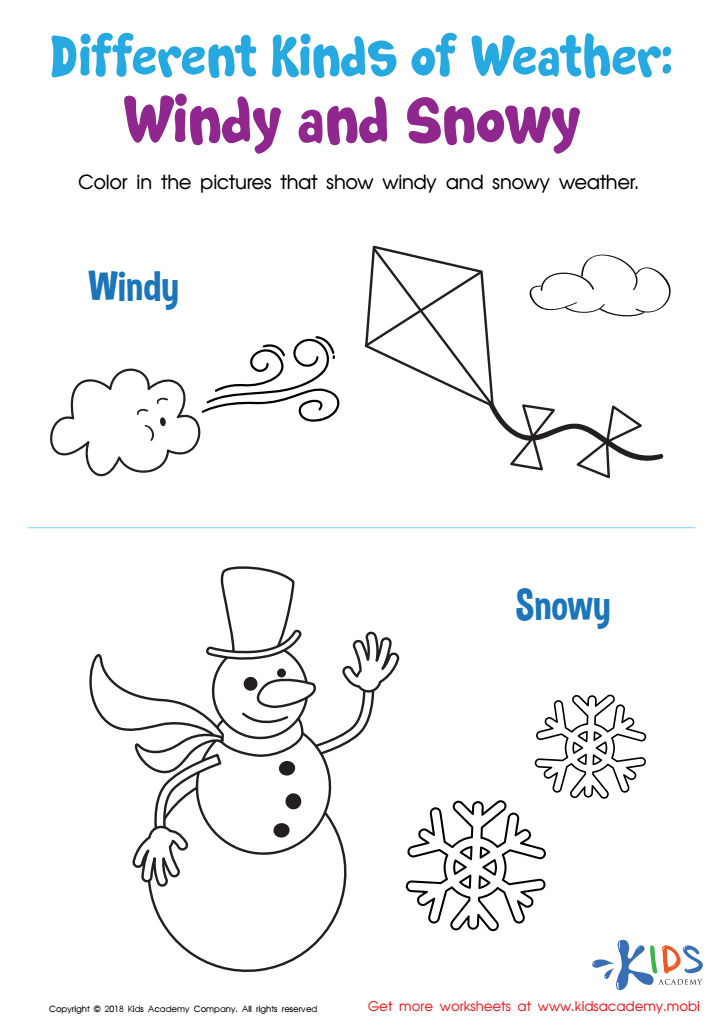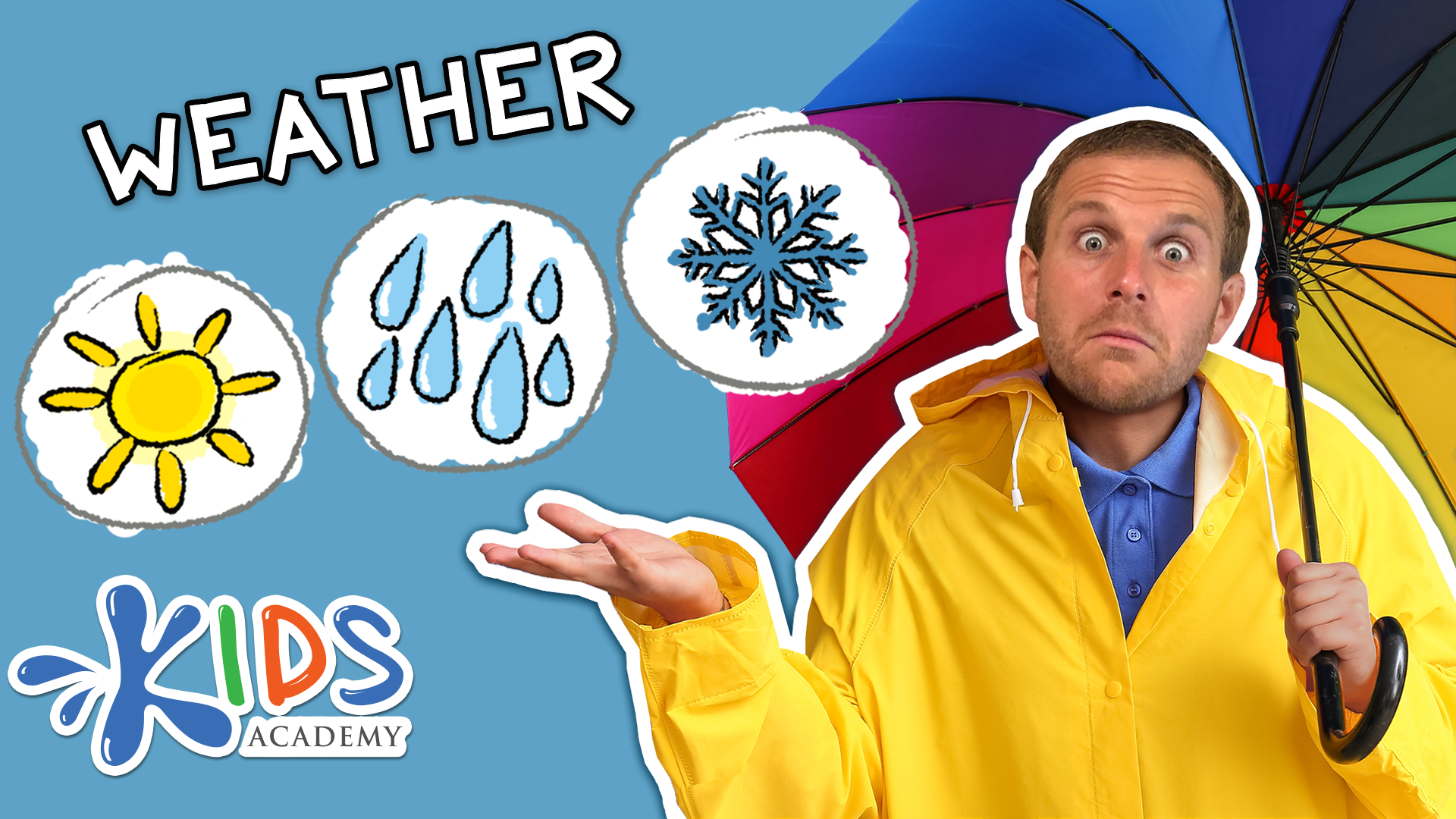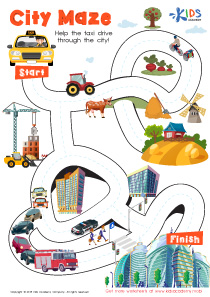Weather Vocabulary Weather Worksheets for Ages 4-9
3 filtered results
-
From - To
Discover our engaging Weather Vocabulary Worksheets designed specifically for children aged 4-9! These interactive activities help young learners explore essential weather terms and concepts, fostering their understanding of the world around them. With colorful visuals and fun exercises, kids will learn to identify different weather conditions, such as sunny, rainy, and snowy. Our worksheets also promote critical thinking and linguistic skills as children practice vocabulary related to weather. Ideal for at-home learning or classroom use, these resources make learning about weather enjoyable and educational. Equip your child with the language skills they need to describe the atmosphere they observe every day!


Favorite Kind of Weather Worksheet


Different Kinds of Weather: Windy and Snowy Worksheet
Understanding weather vocabulary is crucial for children aged 4-9 as it lays the foundation for essential literacy and cognitive skills. Weather influences daily life and introduces key scientific concepts, making it a relevant topic for young learners. When parents and teachers actively engage children in discussions about weather conditions—such as rain, snow, sunny, or stormy—they foster language development. Children learn to articulate their observations, enhancing vocabulary skills and building confidence in communication.
Moreover, familiarizing kids with weather-related terms can spark curiosity about the natural world. This curiosity encourages exploratory behavior, critical thinking, and problem-solving as children begin to ask questions like, “Why does it rain?” or “What causes a sunny day?” Incorporating weather lessons can also support interdisciplinary learning, integrating math through temperature readings and art through weather-themed crafting.
Furthermore, understanding weather concepts is essential for safety, teaching children how to respond appropriately to various conditions, such as seeking shelter during storms. Thus, emphasizing weather vocabulary empowers children, equipping them with knowledge crucial for their present and future interactions with the world around them. Engaging with this topic nurtures not just linguistic skills, but also their relationship with the environment.

 Assign to My Students
Assign to My Students



















